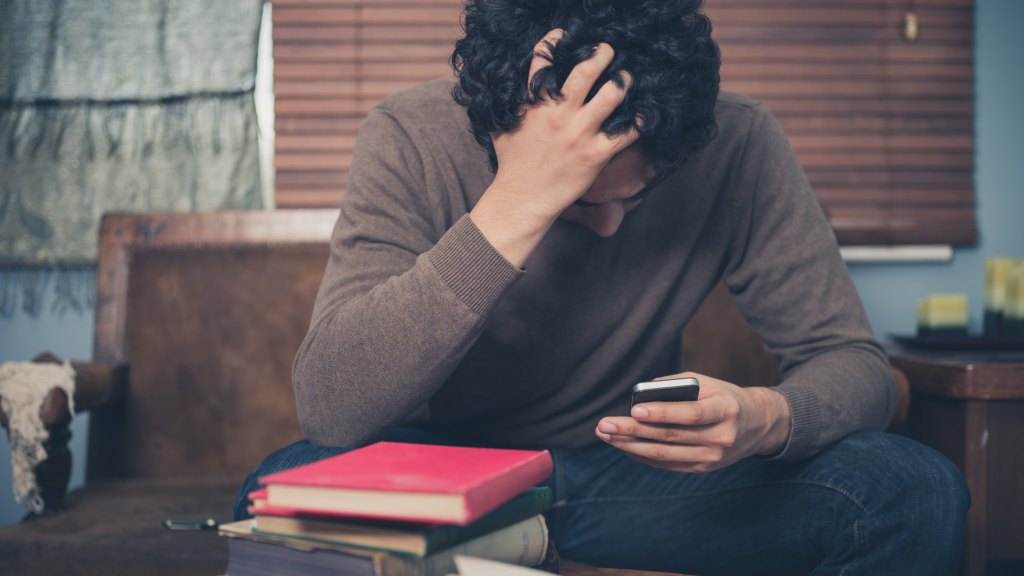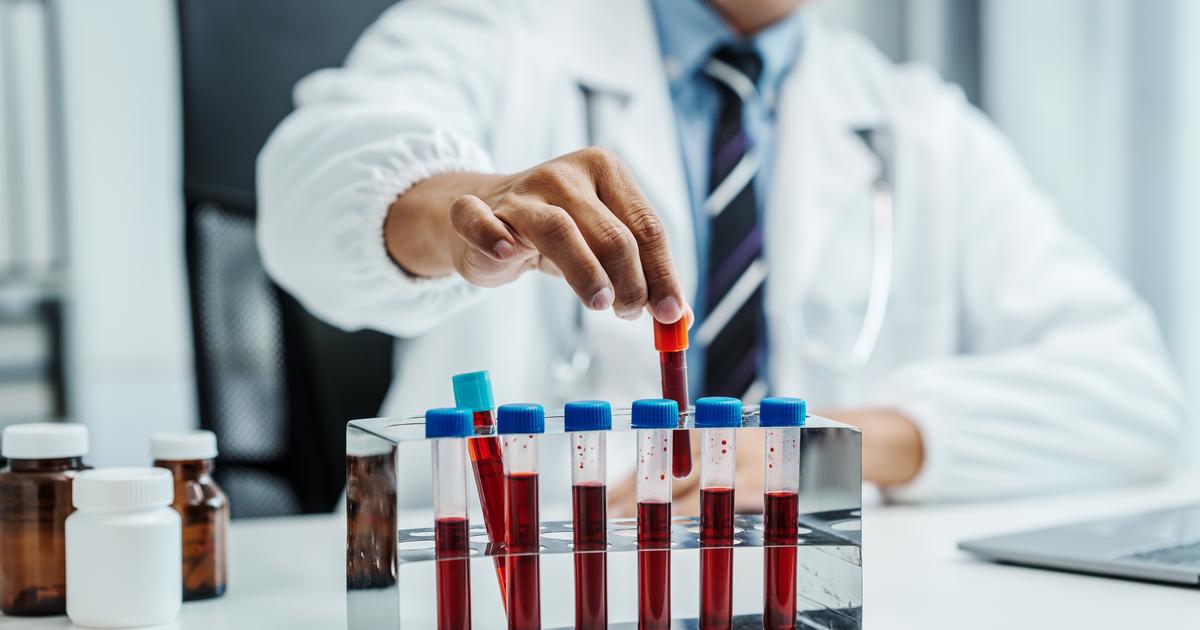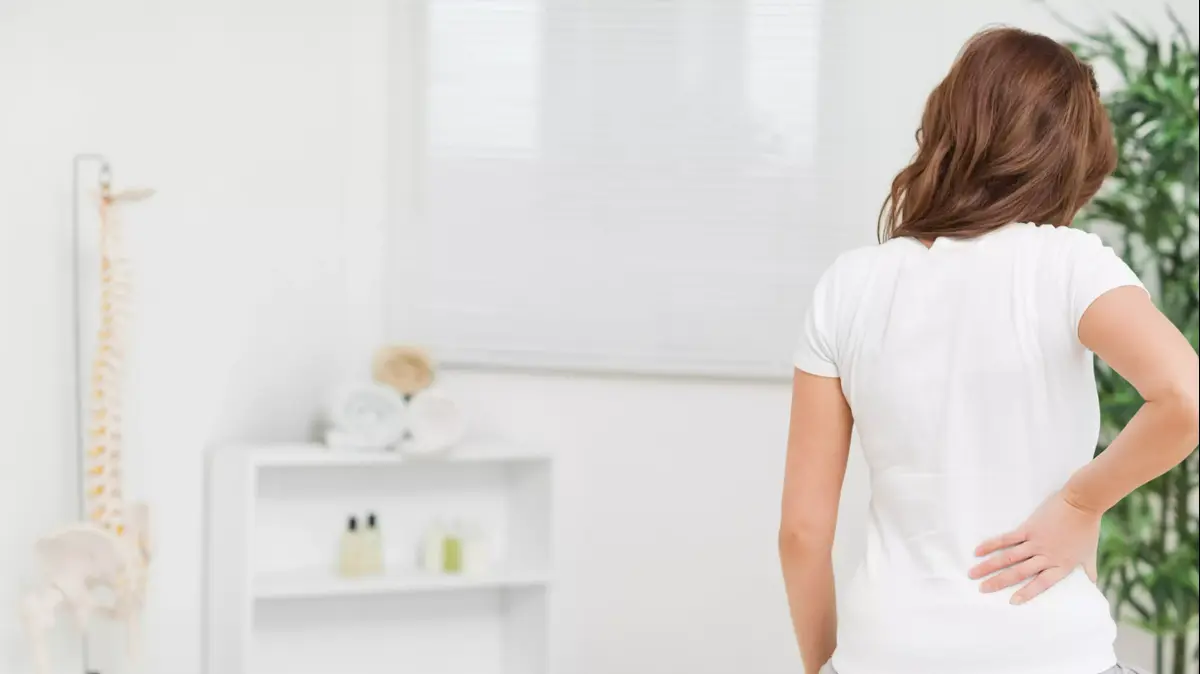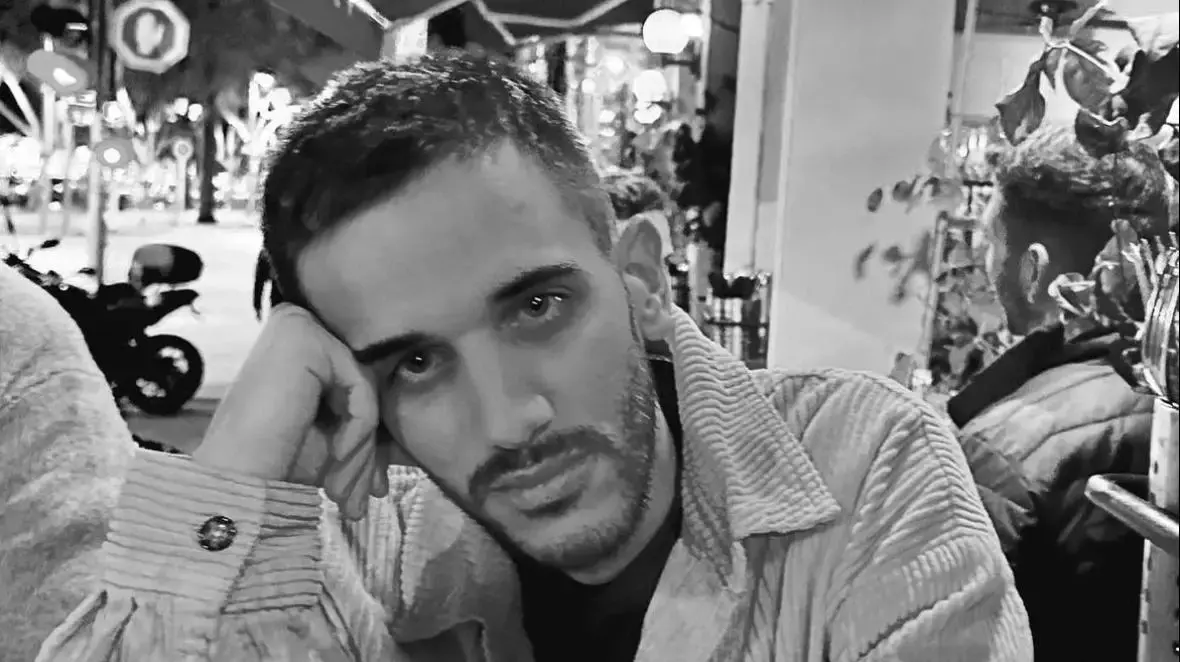Study reveals that the pandemic affected children's mental health 1:54
(CNN Spanish) -
Depression symptoms in young people around the world have doubled during the covid-19 pandemic compared to pre-pandemic levels.
One in 4 teens experiences clinically elevated depression symptoms, according to an analysis published in the medical journal
JAMA Pediatrics.
In the United States alone, 30% of adults have reported symptoms of anxiety and depressive disorder during the pandemic, compared to 11% reported before it began, according to the Kaiser Family Foundation (KFF). ).
However, even though 20% of adults reported needing mental health counseling or therapy, they do not receive it.
Depression is a disorder that is due to an alteration in the neurotransmitters that regulate mood and, according to the American Psychological Association (APA, for its acronym in English), it is a condition that goes beyond sadness.
What is depression?
Some tips to deal with this disorder and how to ask for help
Dr. Alejandra Solís Flores, a specialist in Psychiatry with a high specialty in sleep disorders, points out that depression not only involves emotional symptoms, but also physical symptoms, such as variations in appetite or alterations in the sleep pattern, and cognitive symptoms, such as impairments in memory, attention, concentration and thinking.
“The thought of a depressed person is a negative thought.
All the time he is thinking that he himself cannot face the situation or that the situation is beyond him, ”Solis Flores explained to CNN en Español.
advertising
For her part, Daniela Chinchilla Ochoa, a psychologist specializing in reproductive and women's mental health, described depression as an ink stain.
"Imagine that it begins in one part of your life and begins to spread to different areas. To the extent that these symptoms begin to affect the adaptive capacity of the person, this is how we can classify whether it is a mild, moderate or severe disorder", he said in an interview with CNN en Español.
"That is why it is important to detect it (a depressive condition) and treat it in time to have a better impact on the quality of life of the person, because it does not disappear," he added.
However, both mental health specialists assure that all types of depression are treatable.
Make the first move
“I think [seeking help] is the first step that patients take a long time to take,” said Solis Flores.
"The pandemic has made us give a lot of importance [to mental health], but effectively people ask themselves 'where or with whom do I have to go?'" He added.
The psychiatrist indicated that the first step is to go to a doctor and let him know the symptoms, either a general practitioner or a specialist that the patient consults regularly.
"They sometimes have training for initial medical management or also for referral to a mental health specialist," said Solis Flores.
Sleep training in adults prevents depression, study finds
However, going to a psychologist in the first instance is also an option, since this professional is trained to assess the severity of symptoms and initiate psychotherapeutic treatment, as necessary.
Solis Flores pointed out that psychiatrists can carry out an evaluation.
"We are trained to first evaluate a management, either pharmacological or on many occasions, we evaluate and decide that a psychotherapeutic treatment is more than enough," he added.
Likewise, Chinchilla Ochoa indicated that when a patient with moderate and severe depression goes to a psychologist in the first instance, it is most likely that he or she will refer them to a psychiatrist.
"It is the best dumbbell to have better results," he added.
The million dollar question: how to treat depression?
Depression affects each person differently, so there is no single treatment that can be applied to all people, which is why an evaluation of each particular case is necessary.
"Many times, when the condition is of multifactorial origin, that is, there is a situation or a problem that is generating the symptoms, it would be worthwhile not only to take the pharmacological treatment, but also to accompany it with a psychotherapeutic treatment," said Solis Flores.
Psychotherapy, as explained by the specialist, is a series of cognitive-behavioral strategies that through techniques such as confrontation, reflection and questioning help to manage certain types of behaviors.
"
What is done in psychotherapy is to improve the coping mechanisms that patients often have in certain life circumstances and that are the issues that led us to depression, "explained Solis Flores.
Eating disorders: what are they, who do they affect, and how do you seek help?
But when do you need psychotherapy, drug treatment, or both?
The answer depends on how mild, moderate, or severe the patient's symptoms are, as well as how long they have been present.
According to Solis Flores "there are cases in which the symptoms are mild, so they could be treated without any drug, but that depends a lot on the severity."
"M
Many times when we tell the patient that a drug treatment is required, I understand resistance or fear, but the fact of delaying a treatment also increases the possibility of complications for patients, "he added.
The specialist explained that as with other diseases, such as diabetes - where glucose levels are regulated through insulin - the brain also works through chemicals that regulate mood states, so, sometimes, it is necessary to use a pharmacological treatment.
"If you attack that biochemical part of your brain and work it in a parallel way in psychotherapy, then you will be able to recover more successfully," said Chinchilla Ochoa, who said that tricyclic drugs are the ones that have a greater effectiveness in the treatment of depression because they do not generate tolerance or dependence.
"What do you mean? You don't need more medication to get the same result and you are not going to get addicted to it (medication)," he added.
Both specialists highlighted the importance of generating a relationship of trust between the patient and the specialist.
When looking for a therapist, the U.S. National Institute of Mental Health (NIHM) offers a number of tips, such as:
Ask about the therapist's area of expertise.
Ask about the types of treatments offered.
Find out how long treatment might last and when symptoms and quality of life might improve.
Look for different options until you find a therapist with whom you feel comfortable.
What about "mindfulness"?
Mindfulness or "mindfulness" is staying in the present and paying more attention to thoughts, feelings and environment without prejudice.
But how effective is it in fighting depression?
Solis Flores indicates that, on many occasions, "mindfulness" works as a support method in a psychotherapeutic and pharmacological treatment.
"It can be a companion. Many times it is not enough, but it can accompany you and help a lot to optimize treatment for depression," he said.
Everything you need to know about mindfulness or mindfulness
"What 'mindfulness' asks you is 'change your focus of attention', which cognitive behavioral therapy does," says Chinchilla Ochoa.
"It is very common that when we are sad, when we are depressed, we focus on a thought that becomes ruminant, that becomes cyclical and is what keeps us constantly sad. What 'mindfulness' does is change the focus of attention to something else and normally it takes it to the senses, not so much to your thoughts, it takes it to your body, "he added.
However, the Dr. in Psychology indicates that "mindfulness" is another technique for treatment and not a replacement for psychotherapy and medications.
In the case of mindfulness-based cognitive therapy (MBCT), it seeks to teach people with a history of depression to disconnect from deeply ingrained dysfunctional thoughts.
There is evidence that MBCT is effective as a treatment to prevent relapse in people with recurrent depression.
"These studies have provided evidence of the efficacy of MBCT on par with maintenance antidepressant drug therapy and lead to a relative risk reduction of the order of 30-40%," reads one study.
Mindfulness-based cognitive therapy, according to the APA, is an eight-week group program that incorporates mindfulness exercises, such as yoga, body awareness, and daily tasks, with full attention to what one is doing.
Can depression be cured?
According to Solis Flores, there is a cure, although it depends on whether the depressive episode is managed and whether the patient complies with the treatment time.
"The patient may be without symptoms and may never have a depressive episode again. However, we also know that having had a previous depressive episode is already a risk factor to present it in the future," he explained.
The specialist in Psychiatry indicated that this does not mean that a person who suffered a depressive episode will always be depressed or that they will not overcome depression.
"We can get ahead, it can be cured, but it has to be vigilant or make the patient sensitize with the symptoms that he presented in the case of a future episode if it occurs. It is not a law, but it is a risk factor so that it returns to have a depressive episode in the future ", concluded.
See here the help contacts in various countries to deal with depression
How to help or seek help?
According to the APA, social isolation increases the risk of depression, although it adds that discussing problems with friends for a long time may in fact "increase depression as well."
Therefore, as depression is a disease that "carries high costs in terms of relationship problems", interpersonal, according to the APA, it can also lead to problems for the family and cause the person to lose productivity problems.
Psychologists, behavioral therapy, and medications are expert-approved treatments.
What to do if you have a loved one with depression, according to the American Foundation for Suicide Prevention.
1. Don't leave the person alone.
2. Remove any firearms, alcohol, drugs, or sharp objects that could be used in a suicide attempt.
3. Call the US National Suicide Prevention Line at 1-800-273-TALK (8255).
4. Take the person to an emergency room or seek help from a medical or mental health professional.
For more tips and warning signs, click here.
In Latin America and Spain
ARGENTINA
Suicide prevention line - help for suicides online
PHONE: (54-11) 5275-1135 or 135 from Buenos Aires and GBA
Let's Talk About Everything
E-mail: contacto@hablemosdetodo.gob.ar
Telephone directory
BOLIVIA
Telephone of hope
La Paz: 2248486
BRAZIL
Centro de Valorização da Vida, CVV
Telephone: 188
Chat: (help by chat)
Email: atendimento@cvv.org.br
CHILE
Telephone of hope
Telephone: 005642221200
Everything improves, help by email or chat
COLOMBIA
Telephone of hope
Barranquilla: (00 57 5) 372 27 27
Bogota: (57-1) 323 24 25
Medellin: (00 57 4) 284 66 00
San Juan de Pasto: 3016326701
COSTA RICA
Phone of hope
Email: telefonodelaesperanzacr@gmail.com
ECUADOR
Telephone of hope
Quito: (593) 2 6000477 - 2923327
SPAIN
Telephone of hope: 717 003 717
HONDURAS
Telephone of hope
San Pedro Sula: (00 504) 2558 08 08
MEXICO
Instituto Hispanoamericano de Suicidologia, AC
Telephone: +5255 46313300
Email: info@suicidiologia.com.mx
PERÚ
Sentido (Peruvian Center for Suicidology and Suicide Prevention)
Telephone: 01 498 2711
Hope phone
Lima: (00 51 1) 273 8026
PUERTO RICO
PAS Line (First Psychosocial Help)
Telephone: 1-800-981-0023
URUGUAY
Last resort
Telephone: 0800-Vive (8483)
VENEZUELA
Telephone of hope
Valencia: 0241-8433308
National: 0-800-PSIQUE
Depression Mental Health









